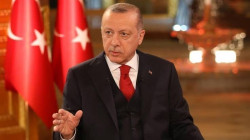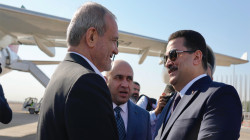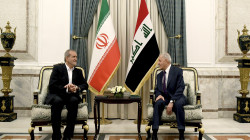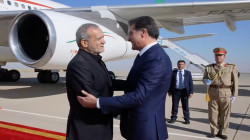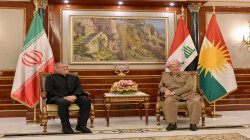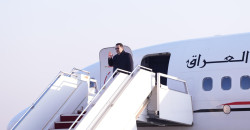Iraqi PM and Iranian President Pezeshkian strengthen ties, sign 14 MoUs
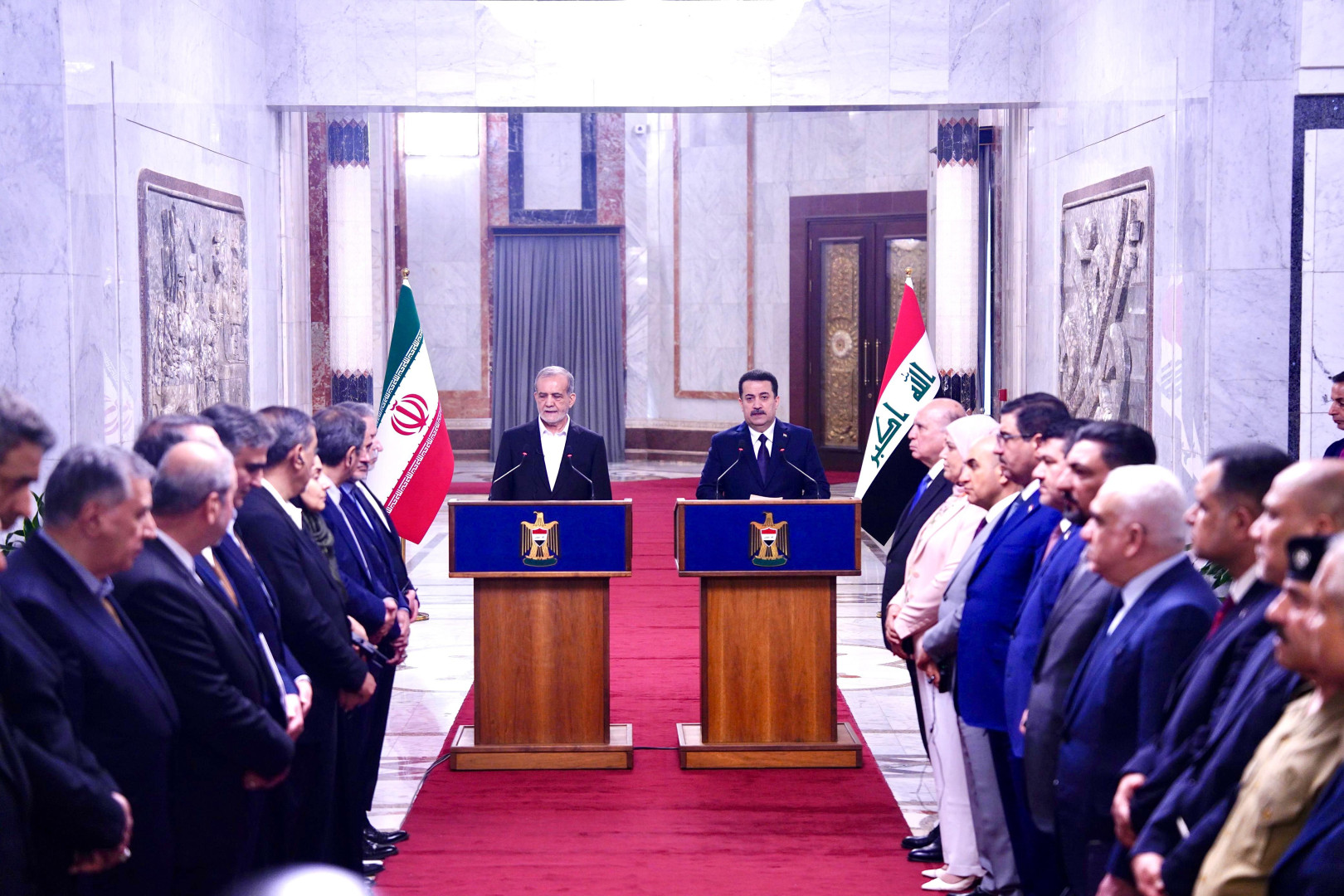
Shafaq News/ Iraqi Prime Minister Mohammed Shia Al-Sudani held a joint press conference following discussions with the Iranian President Masoud Pezeshkian on his first visit to Baghdad after assuming the position.
A Historical and Strategic Partnership
Prime Minister Al-Sudani pointed out the “strong” historical, religious, and cultural relations between Iraq and Iran, noting that these ties are “reflecting a long-standing and strong bond between the two neighboring Muslim peoples.”
“This historical relationship can translate into the highest levels of cooperation and partnership to face current challenges and support regional stability.”
He reaffirmed Iraq’s unwavering support for Iran following the loss of President Ebrahim Raisi and expressed confidence in Pezeshkian’s leadership.
Economic Integration and Infrastructure Development
Economic cooperation featured prominently in the discussions, with both leaders focusing on strategic partnerships aimed at integrating their economies. Al-Sudani underscored the significance of the “shared economic file” in fulfilling the aspirations of both nations. Key infrastructure projects were highlighted, including the Basra-Shalamcheh railway, which “will facilitate the movement of citizens, especially during religious pilgrimages.”
"We discussed mechanisms to advance this vital file, which is essential for economic integration," Al-Sudani noted. He added that the railway would facilitate the movement of citizens and is part of broader efforts to improve transport links between Iraq and Iran.
Additionally, Al-Sudani spoke about developing border industrial zones in Wasit, Maysan, and Basra governorates, along with a planned economic city in Zurbatiyah. These projects are intended to boost trade and cooperation between the two countries.
Security Cooperation and Regional Stability
The leaders also discussed security cooperation, focusing on border management and preventing cross-border threats. “We addressed security cooperation, reiterating our principled and constitutional stance that strictly prohibits any group from carrying out acts of aggression, armed operations, or cross-border threats against the Islamic Republic of Iran.”
“We agreed on managing security, especially in the border areas,” Al-Sudani said, emphasizing ongoing communication between the security agencies of both countries.
Support for Palestine and Condemnation of Israeli Aggression
The ongoing crisis in Gaza was another topic during the discussions. Both leaders condemned what they described as "Zionist aggression" against Palestinians and called for the international community to act. Al-Sudani expressed his government's firm stance against the genocide in Gaza and stressed the need for legal and ethical obligations to be upheld by the global community.
“Our joint stance on this aggression remains clear and firm,” Al-Sudani said, urging the international community to address the escalating violence in the region.
14 Memorandums of Understanding Signed
The visit also marked the signing of 14 memorandums of understanding (MoUs) in fields such as economy, education, media cooperation, and infrastructure development. These agreements, alongside previously signed deals, were described by Al-Sudani as a “promising roadmap” for strengthening cooperation between Iraq and Iran.
“We signed 14 MoUs in various fields today, which form a promising roadmap for joint cooperation,” Al-Sudani stated, reflecting the determination of both governments to deepen ties across a wide range of sectors.
Iran’s Role in Iraq’s Energy Sector
Al-Sudani expressed gratitude for Iran’s support in the energy sector, particularly its role in supplying gas to power Iraq’s electricity plants, despite the challenges posed by sanctions.
“We thank our brothers in the Islamic Republic for their role in facilitating the gas purchase agreement with Turkmenistan.”
